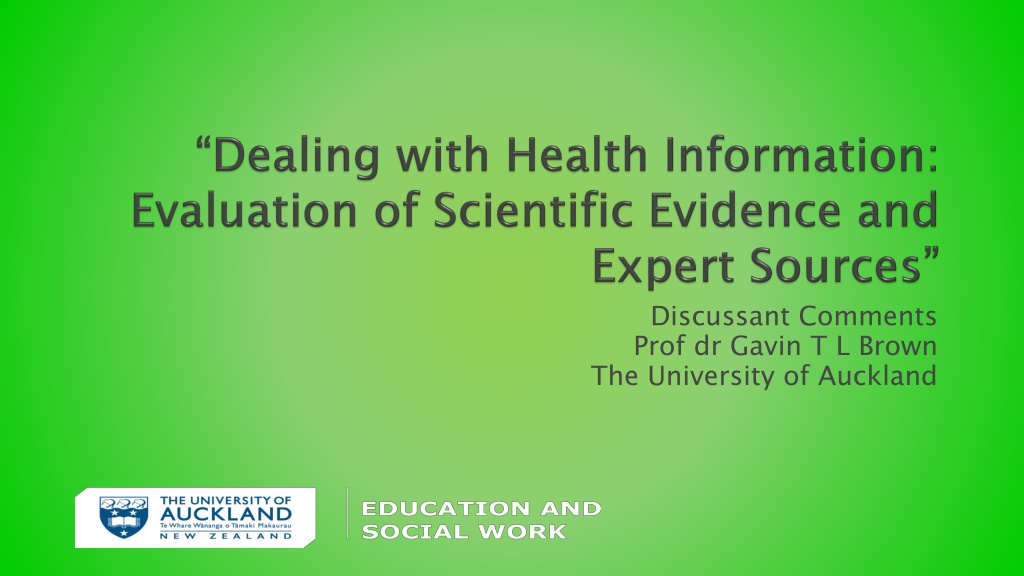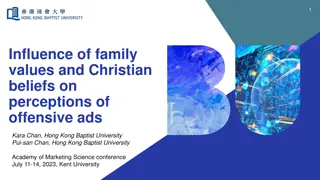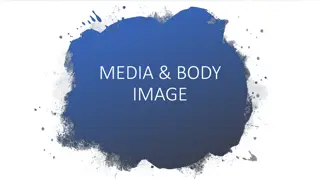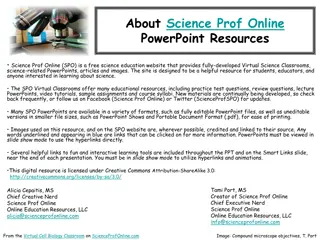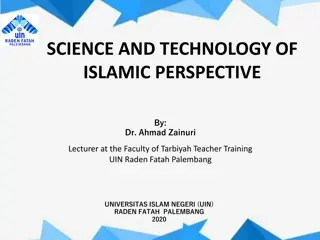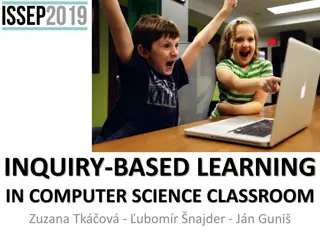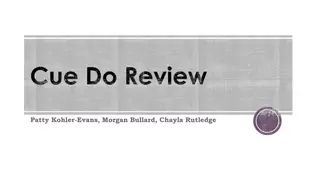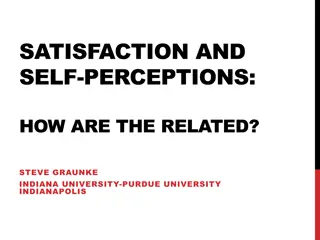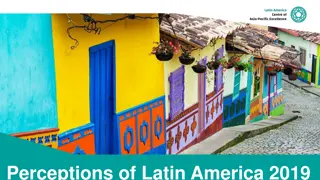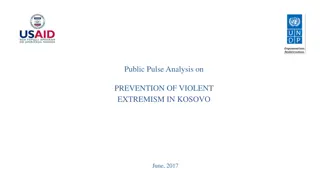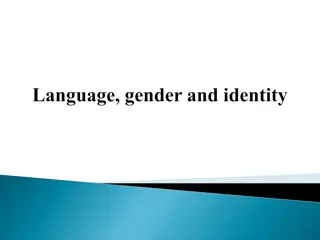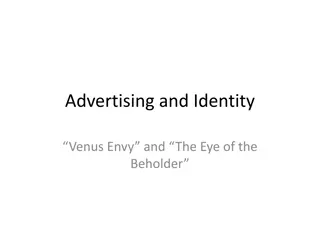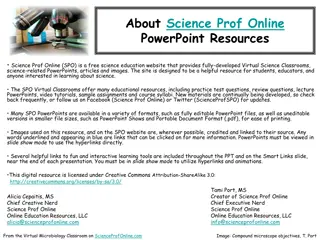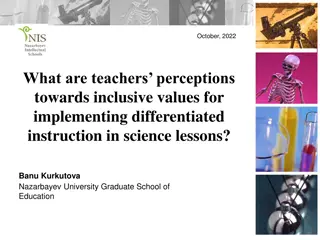Perceptions of Science in Modern Society
Authors discuss mistrust in science and the reliance on human stories, referencing examples like the polio vaccine and social media. They explore how laypeople use heuristics and question the loss of trust in expertise and science. The narrative touches on the Dunning-Kruger effect and societal views on science, highlighting a shift towards skepticism despite the benefits of scientific advancements.
Download Presentation

Please find below an Image/Link to download the presentation.
The content on the website is provided AS IS for your information and personal use only. It may not be sold, licensed, or shared on other websites without obtaining consent from the author. Download presentation by click this link. If you encounter any issues during the download, it is possible that the publisher has removed the file from their server.
E N D
Presentation Transcript
Discussant Comments Prof dr Gavin T L Brown The University of Auckland
Authors have done a good job exposing the reasoning, motivations for mistrust in science diversity of problems and contexts and methods Israel Germany Germany US This problem matters Science can be wrong, but it is also a method for knowing which has not failed humanity (for the most part) polio vaccine health food HIV Facebook Reddit discussion lab/online experiment? school essays Social media
The reliance on the human story echoed for me Danny Kahneman s System 1 vs System 2 types of thinking. We rely on people as an interpretive heuristic much more than the cognitively demanding act of studying and making sense of statistics, data, logical reasoning Accepting and dealing with simplicity and power (hence benefit) of heuristics is a challenge for science Lay people are not trained to think systematically around their health issues they aren t doctors or scientists so they use system 1 .duh, right?
Kurt Vonnegut Harrison Bergeron A dystopic future in which the Handicapper General makes everyone equal at lowest common denominator Everyone s opinion is as good as another s If your facts don t match my feelings or perceptions they aren t facts alt-facts, fake news Dunning-Kruger effect: The less you know, the more you think you know; so why would we expect lay-people to trust in expertise and science rather than their own intuitions? (they don t know enough to know they don t know enough and need better information)
Science is now perceived negatively, as politically privileged or antagonistic, or at least debatable. It seems scientists have lost the struggle for hearts and minds of the people. They re in the pockets of big pharma
In the 1930s, totalitarian ideologies were the problem and Popper gave us a way out with fallibilism . Now we have a philosophic world view (at least in education) where despite the material advantages of science, technology, engineering we have a world-view that is cynical and suspicious of the human, political, & economic motivations of science. perhaps the negative view arises predominantly from French philosophy which has attacked the legitimacy and universality of science as a way of knowing. What approach to science will rebuff this type of thinking?.... Should we ask French scientists how they rebut Foucault, Deleuze, & Derrida, etc.?
Conceptions of knowledge Relativism Dualism Knowledge as absolute, provided by authorities Multiple perspectives - opinions of equal value Evidence used to reason among alternatives Commitment to a personal, reasoned perspective Awareness of knowledge as provisional Pivotal position Our goal is in this space We don t want to substitute personal experience with science as authority Changing as a person - sense of identity Recognising differing forms of knowledge and learning processes Expanding awareness through a broader, integrative conception Threshold Acquiring factual information Memorising what has to be learned Applying and using knowledge Seeing things in a different way Understanding what has been learned Reproducing Seeking meaning Entwistle, N. J., & Peterson, E. R. (2004). Conceptions of learning and knowledge in higher education: Relationships with study behaviour and influences of learning environments. International Journal of Educational Research, 41, 407-428. Conceptions of learning
The research is being done by those interested in the teaching of science The problem has to be addressed beyond science education . International Baccalaureate Theory of Knowledge course
This is a problem of citizenship, and needs to be in the curriculum across all subjects. To retain it within science or health, sets us up for failure. Looking forward to intervention solutions (pedagogies & curricula) that can be implemented in the real world of teaching and schooling Remember! This matters to all of us .
